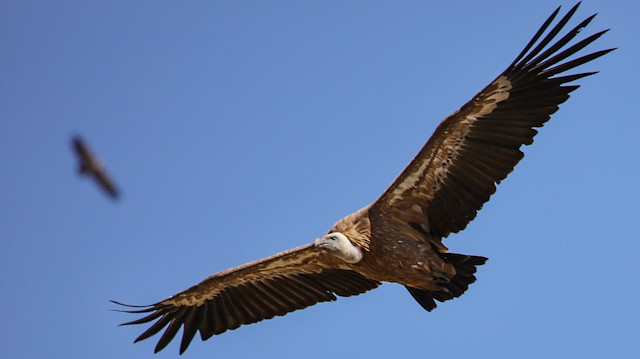
A captive breeding program to protect one of the four European vulture species is continuing successfully, according to the head of an international organization working on vulture conservation.
“Our captive breeding program for the bearded vulture species currently has 178 birds and 70 pairs. It is unique in the sense that it is managed entirely for conservation purposes so that the birds can be reintroduced into the wild,” Jose Tavares, head of the Vulture Conservation Foundation, told Anadolu Agency.
Founded in 2009, the foundation is an international nongovernmental organization working for the conservation of European vulture species -- bearded vultures, griffon vultures, cinereous vultures, and Egyptian vultures.
On the recent filming of the hatching of a bearded vulture chick, he said this was one of 68 eggs laid in the breeding program and the hatching process was one rarely witnessed by people.
“It is not easy to breed these birds in captivity. They only start breeding when they are 10 years old. That means that a bird we release today needs to survive for 10 years before it starts breeding in the wild,” said Tavares.
He said that, despite the difficulties and time demands, the program has been highly successful and proven invaluable in efforts to protect the vulture species and increase its numbers in the wild.
“Currently, we have four reintroduction projects -- one in the Alps, one in France’s Massif Central region, and two in Maestrazgo and Andalusia in Spain. There is also a restocking project in Corsica,” said Tavares.
He added that the next project will be in the Balkans to restore the vulture species across Europe.
On the nature of bearded vultures, Tavares said the “unique” birds are usually found in mountainous areas and are one of the rarest vulture species.
“They are unique because 80% of their diet consists of bone marrow. In many languages, they are called bonebreaker, because they often drop bones onto rocks to crack them open,” he explained.
He said bearded vultures once faced extinction in Europe, but they always survived in Turkey, where their population is connected to the Caucasus region and where there are currently around 150 pairs.














